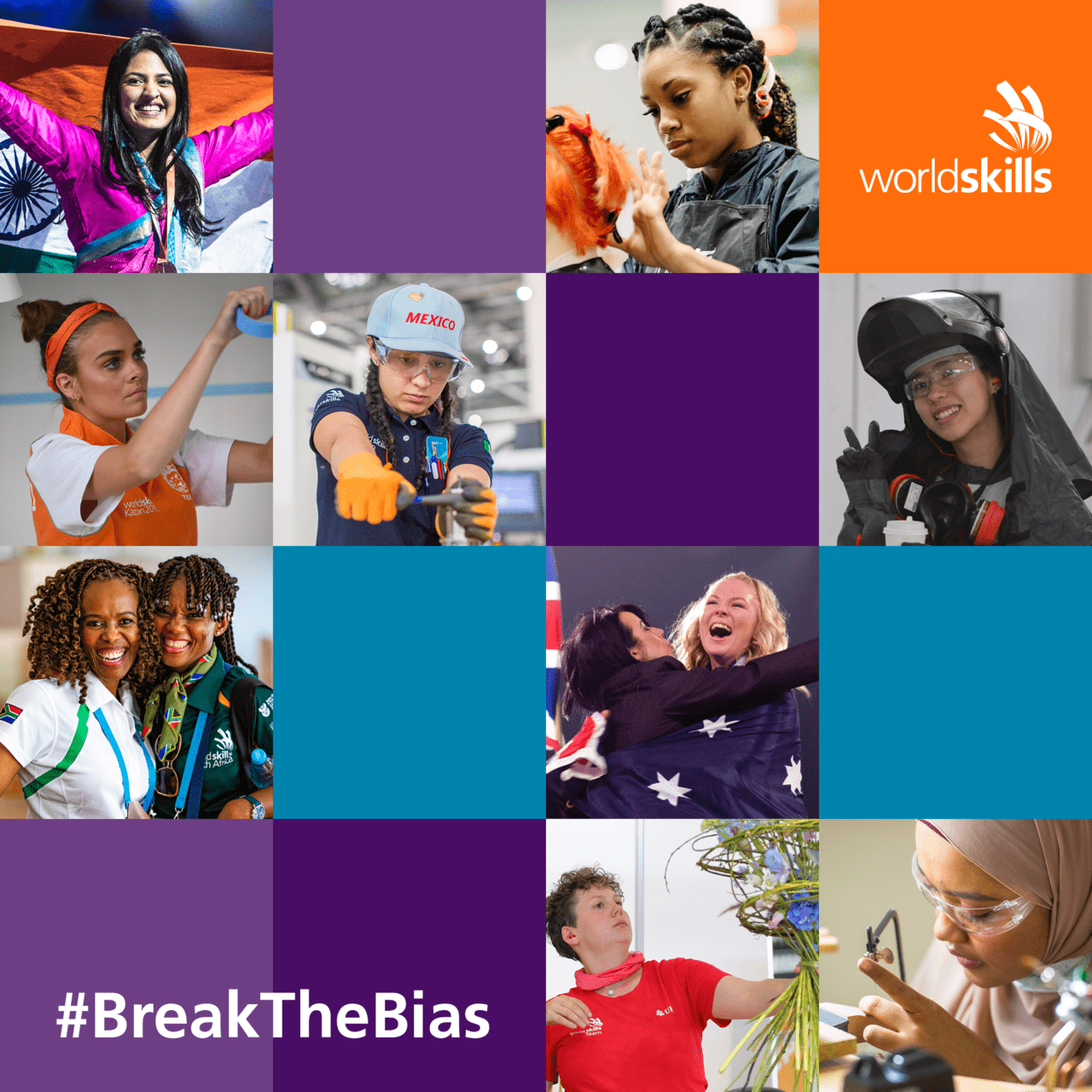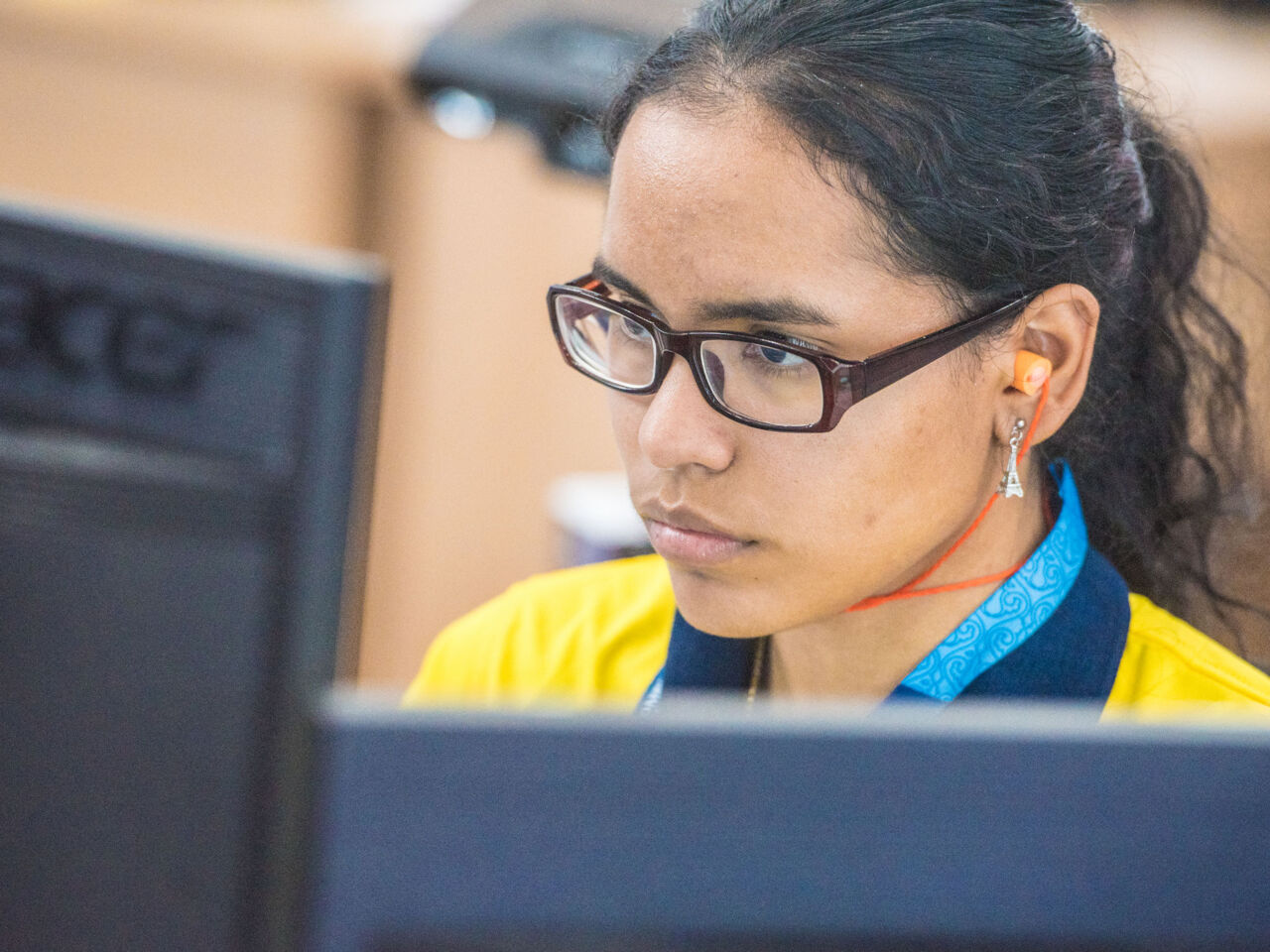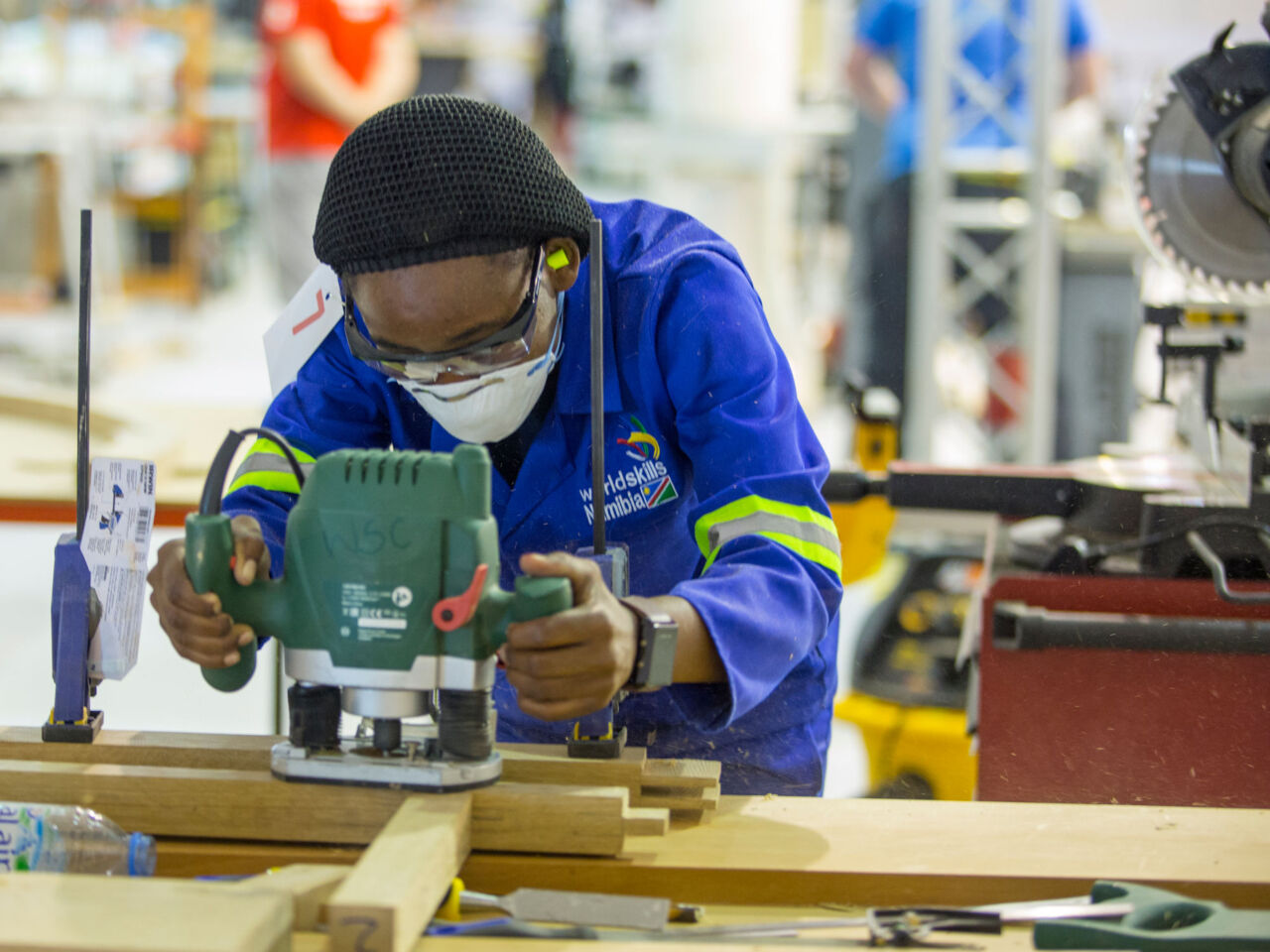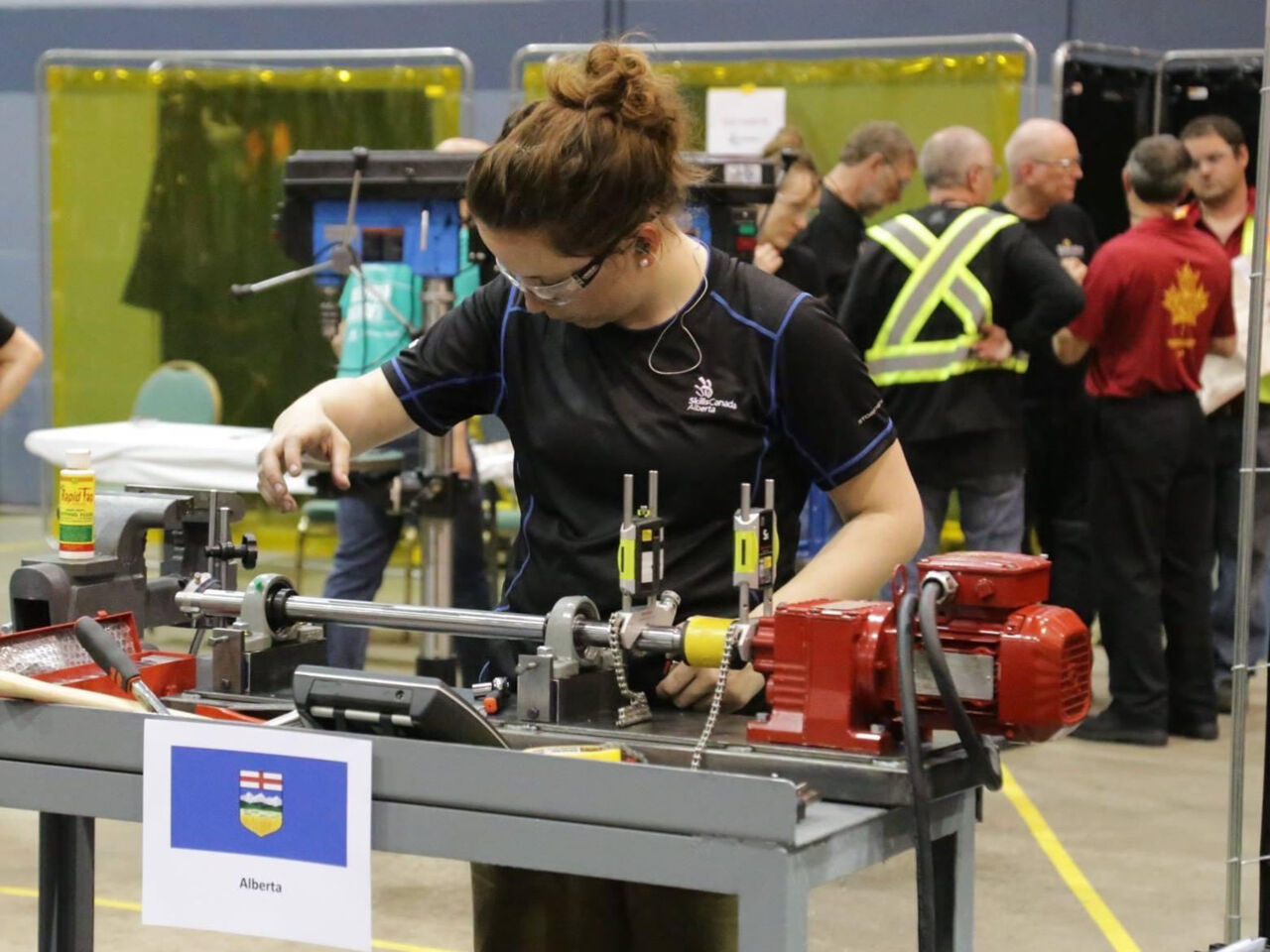7 March 2022
#BreakTheBias against gender-based segregation in skills
This International Women's Day, we invite you to #BreakTheBias, celebrate women’s achievements, and take action for equality.

Gender segregation in jobs persists across and within sectors. Addressing gender gaps is one of the most pressing labour market challenges facing the global community.
The pandemic has set women further behind, widening the skills gap and blocking the path to equality. According to the World Economic Forum’s Global Gender Gap report, the pandemic has set back the gender gap by 39 years.
The pandemic has disproportionately impacted women and other marginalized groups that already faced barriers to accessing and excelling in many industries.
WorldSkills is joining this year’s theme for International Women’s Day — #BreakTheBias. We need to normalize the presence of women and men in all skills and workspaces, and WorldSkills Competitions offer such a global platform.
Globally, women workers are mostly employed in education, health, and social work, followed by wholesale and retail trade, while men are concentrated in the construction and transport, storage, and communication sectors, according to data published by the ILO and the UN.
Occupational segregation is linked to gender roles and stereotypes, which associate women with caregiving and home-focused activities. Such bias is reflected in the paths young women and men choose in vocational education and training.
These norms were reflected at WorldSkills Kazan 2019, where mostly men participated in the majority of skills in the Construction and Building Technology, Information and Communication Technology, Manufacturing and Engineering Technology, and Transportation and Logistics categories. Only the skills of Chemical Laboratory Technology and Freight Forwarding had more women competing, and Painting and Decorating which had almost the same number of Competitors from both genders.
In contrast, it was mostly women Competitors featured in skills within the Creative Arts and Fashion, and Social and Personal Services categories; except for Jewellery, Cooking, and 3D Digital Game Art where women represented a minority. Participation was also balanced in Graphic Design and Hotel Reception.
According to UNESCO, in the majority of developing countries, women are much less likely than men to enroll in Vocational and Education Training (VET), with even lower enrolment numbers in fields requiring training in science, technology, engineering, and mathematics (STEM).
This inequity limits individuals, families, and communities from reaching their full potential as outlined in the United Nation’s Sustainable Development Goals. Many STEM fields already suffer from a skills shortage. If women are not trained for the jobs of the future, alongside greater diversity in leadership roles, it will have a severe impact on labour market outcomes and the prosperity of women everywhere.
The underrepresentation of women in designing sustainable solutions also means that their needs and perspectives are more likely to be overlooked.
As part of an equity, diversity, and inclusion agenda, WorldSkills International is working together with its Members and Global Partners to find solutions to gender imbalances and promote diversity and inclusivity in skills.
Increased equity across all occupations leads to better outcomes, more innovation, thriving individuals, and more sustainable industries.
Related stories
-

#BreakTheBias: “In the construction field, women roles are office-based”
23 March 2022
-

#BreakTheBias: “I was always the only woman in every competition”
15 March 2022
-

#BreakTheBias: “Criticism from society motivated me to never give up”
10 March 2022
-

#BreakTheBias: “More women in trades is essential for a stronger workforce”
9 March 2022